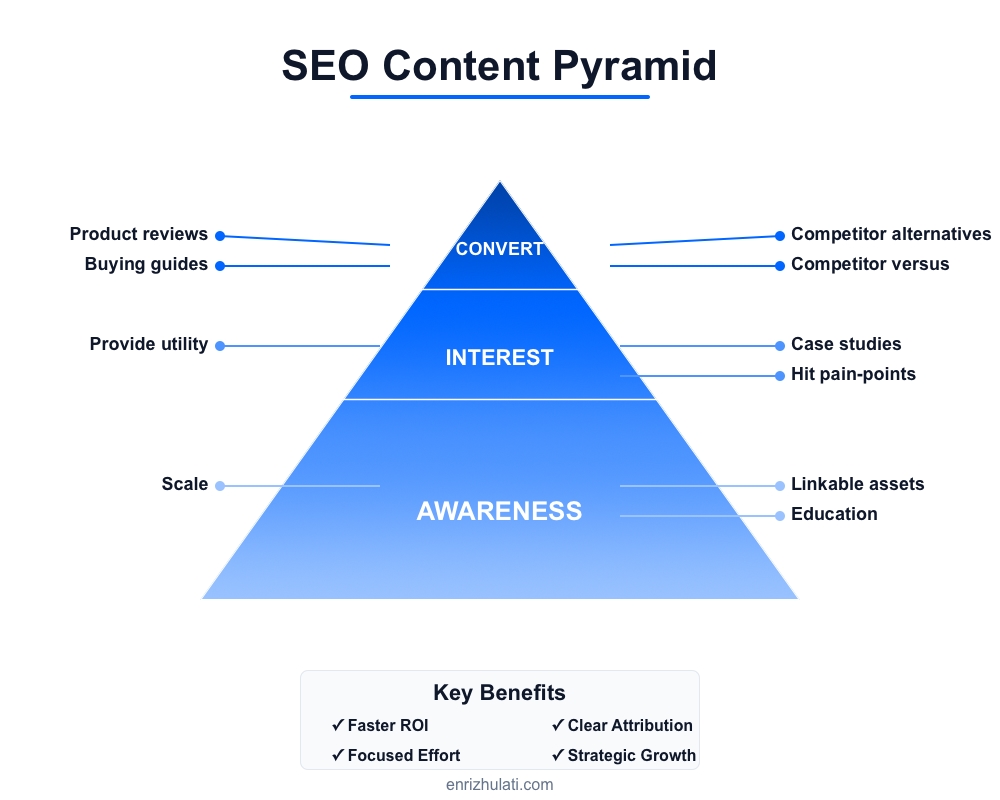Hidden SEO Opportunities
Standard SEO advice works—until it doesn't. Discover hidden opportunities most websites overlook that can drive exceptional traffic without massive budgets.

Underutilized Tactics That Drive Massive Traffic
You've read all the standard SEO advice. You're optimizing meta tags, building backlinks, and creating quality content. But your traffic growth has plateaued, and you're wondering what's missing. The truth is, while everyone focuses on the same basic SEO strategies, there's a world of underutilized tactics that savvy businesses are quietly using to drive massive traffic gains. In this guide, I'll reveal the hidden SEO opportunities most websites completely overlook—tactics that can give you a competitive edge without requiring massive budgets or technical expertise.
Beyond the SEO Basics: What Everyone Else Is Missing
Standard SEO advice works—until it doesn't. When everyone follows the same playbook, the advantage disappears. The real opportunity lies in the strategies most businesses ignore:
1. Entity-Based SEO: The Future of Search Optimization
Google has evolved from a keyword-matching engine to an entity-understanding system. Yet most SEO strategies remain stuck in the keyword era. Entity-based SEO focuses on building topical authority around concepts rather than just targeting individual keywords.
Here's how to implement it:
Create content clusters: Develop comprehensive coverage around core topics instead of isolated articlesLeverage schema markup: Help Google understand the entities your content discussesBuild entity associations: Connect your brand with relevant concepts through consistent content themes When I implemented entity-based SEO for a healthcare client, their topical authority for "preventative care" expanded to rank for over 450 related terms—most of which they never explicitly targeted.
2. Search Intent Optimization Beyond Keywords
Most businesses optimize for keywords. Smart businesses optimize for search intent stages. Every search query represents a specific stage in the buyer's journey: Informational: "how to improve website traffic"Navigational: "google analytics login"Commercial investigation: "best SEO tools comparison"Transactional: "buy ahrefs subscription"
The opportunity lies in mapping your content strategy to capture users at every stage of intent:
Create different content types optimized for each intent stageTailor your calls-to-action to match the user's current position in their journeyBuild strategic internal linking paths that guide users through your intent funnel For ComparePower.com, we developed content targeting all four intent stages for their key topics. The result? A 215% increase in conversions because we captured users earlier in their journey and guided them through to decision.
3. Featured Snippet Optimization
While everyone focuses on ranking #1, the featured snippet (position #0) often captures 35-58% of clicks. Yet only 19% of SEO professionals actively optimize for featured snippets.
Strategic snippet optimization requires:
Identifying snippet opportunities in your niche using tools like Ahrefs or SEMrushStructuring content with clear, concise answers to common questionsUsing proper formatting (lists, tables, paragraphs) that matches Google's preferred snippet format for each query typeIncluding supporting information that encourages users to click through for more details For AlbaniaVisit.com, optimizing just 12 key pages for featured snippets resulted in a 71% traffic increase to those pages, with minimal additional content creation.
4. Historical Content Optimization
Most businesses constantly chase new content creation, overlooking the goldmine of existing content that's already built authority but needs refreshing.
The opportunity:
Identify underperforming content with good backlink profilesUpdate statistics, examples, and information for relevanceExpand coverage to match today's more comprehensive search intentImprove formatting, readability, and internal linkingRepublish with current dates (when appropriate) When I applied historical optimization to a client's blog with 300+ posts, focusing on just the top 20 underperforming pieces increased their organic traffic by 83% in three months—with zero new content creation.
5. Predictive Search Optimization
While most SEOs focus on current trends, forward-thinking businesses optimize for emerging search patterns before competition arrives.
How to implement predictive search optimization:
Monitor Google Trends data for rising topics in your nicheAnalyze year-over-year search volume patterns to identify seasonal opportunities before they peakLeverage tools like ExplodingTopics.com to identify emerging conceptsCreate comprehensive content for these topics before they become competitive One client in the health supplements space used this approach to rank #1 for a trending ingredient six months before search volume peaked—resulting in a 428% ROI on their content investment as they dominated the space while competitors scrambled to catch up.
How to Implement Advanced SEO Tactics Without Getting Overwhelmed
The challenge with advanced SEO isn't understanding the concepts—it's implementation. Here's how to approach these tactics systematically: Audit your current performance: Identify your existing strengths and gapsPrioritize one advanced tactic: Choose the strategy most aligned with your current capabilitiesStart with a pilot project: Apply the tactic to a limited content set firstDocument your process: Create templates and systems as you learnMeasure impact: Compare results against your standard SEO approachesScale gradually: Expand successful tactics across your content strategy The key is avoiding the temptation to implement everything at once. Each of these tactics can deliver significant results independently—focus on mastering one before expanding to others.
The Competitive Advantage of Unconventional SEO
The most successful SEO strategies today aren't just about doing the fundamentals better—they're about doing what others aren't doing at all. While your competitors chase the same keywords with the same approaches, these underutilized tactics offer a pathway to meaningful differentiation and sustainable traffic growth. Remember, SEO isn't just about technical optimization—it's about understanding how people search and creating strategic advantages in a competitive landscape. By implementing these hidden opportunities, you can build traffic streams that continue delivering value long after your initial optimization work. Ready to explore how these advanced SEO tactics could transform your website's performance? Let's talk about which approaches might work best for your specific situation and goals.
Continue Reading

Your Framework for Driving Traffic and Growth That Pays
The SEO Content Pyramid framework prioritizes conversion-focused content first, helping businesses generate leads faster while building sustainable organic traffic.

Strategies to Boost Your SaaS Brand's Visibility in AI Assistants
As AI assistants become the new gatekeepers for software discovery, these 10 strategies will ensure your SaaS product appears in recommendations when users ask "What's the best tool for...?"

Don't Sweat the Small Stuff
A simple paperweight taught me to stop chasing noise, conserve energy, and win with calm—at work and in life.
